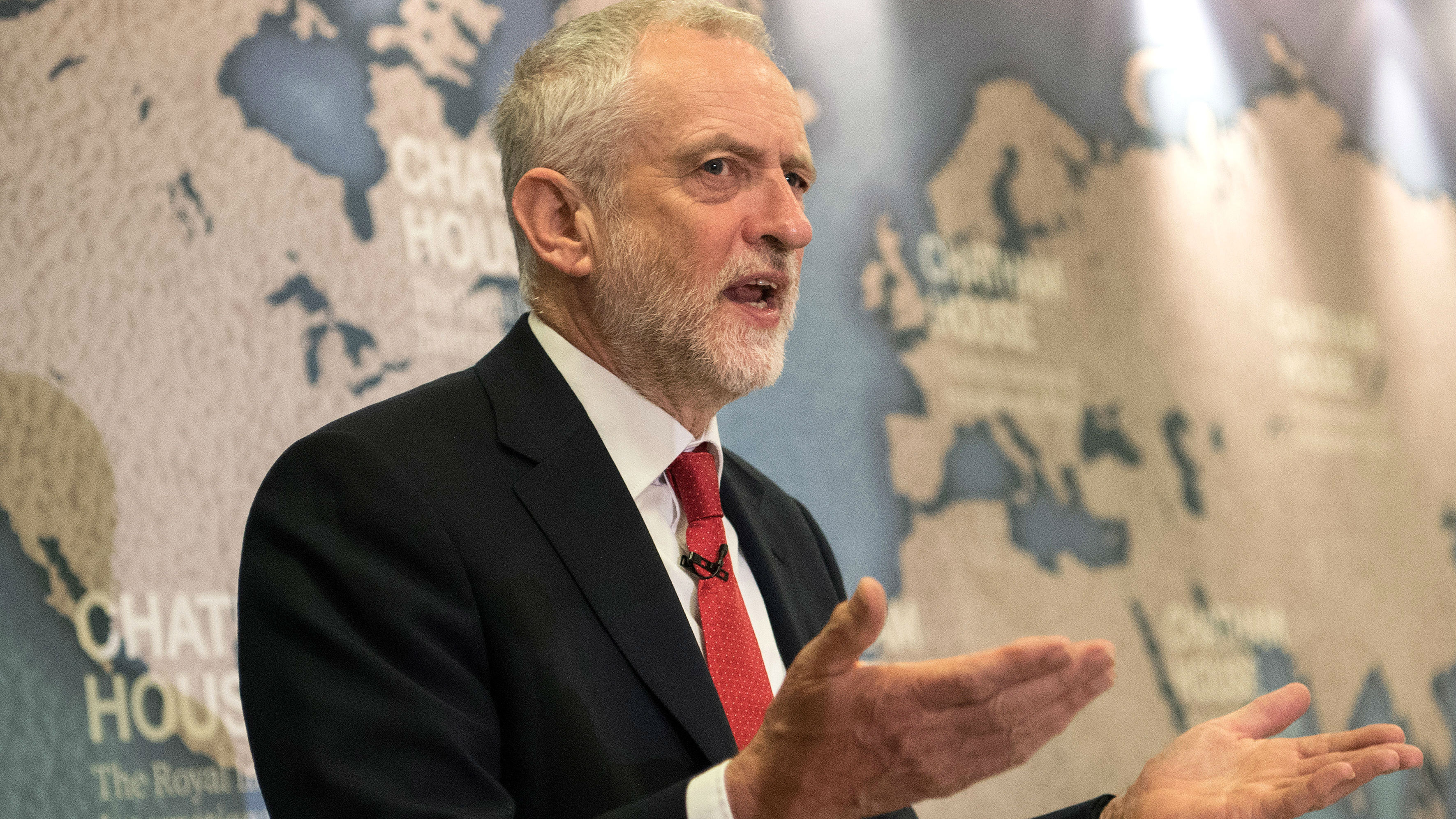Does Jeremy Corbyn’s softer Brexit stance bring him closer to No. 10?
Labour’s support for a customs union signals leader’s intent to topple government, but threatens party’s core support

A free daily email with the biggest news stories of the day – and the best features from TheWeek.com
You are now subscribed
Your newsletter sign-up was successful
Jeremy Corbyn has, as expected, attempted to derail Theresa May’s premiership by announcing as Labour policy a permanent customs union with the EU – a position supported by a number of Tory rebels.
Corbyn’s suggestion that Labour would pursue “a new, comprehensive UK-EU customs union” after Brexit found him unlikely allies in the Confederation of British Industry (CBI) and the Institute of Directors (IoD), as well as the former Conservative chancellor George Osborne.
Osborne said in the Evening Standard’s editorial that the Tories’ insistence that a customs union could not be part of any final Brexit deal had offered Labour an “open goal”, and Corbyn had “just kicked the ball into the back of it”.
The Week
Escape your echo chamber. Get the facts behind the news, plus analysis from multiple perspectives.

Sign up for The Week's Free Newsletters
From our morning news briefing to a weekly Good News Newsletter, get the best of The Week delivered directly to your inbox.
From our morning news briefing to a weekly Good News Newsletter, get the best of The Week delivered directly to your inbox.
The policy switch makes “Labour appear smarter and less fantastical than the Conservatives”, says The Guardian.
“Corbyn is right for two reasons,” the paper adds. “First, a customs union would make it easier to avoid a hard border between Great Britain and the continent, especially in Ireland. Second, UK industry relies on cross-border supply chains, and without a tariff-free arrangement companies would face costly delays.”
The Conservative Party’s “fixation on a clean break with the bloc forces it to ignore or wish away these two inconvenient facts”, agrees the Financial Times.
But what does the step towards a softer Brexit mean for the party’s fortunes in the future?
A free daily email with the biggest news stories of the day – and the best features from TheWeek.com
Heartache in the heartlands
The genius of Labour’s constructive ambiguity on Brexit “is that it managed to please all of the Labour people, but you can’t do that all of the time, forever,” says The Times’s Matt Chorley.
The Labour leadership “is hoping that the promise of other conditions around its own negotiating stance (demanding protections for state aid, for instance) will give Labour MPs and candidates in pro-Leave areas enough cover to defend the party’s softer line”, says Channel 4’s Gary Gibbon.
And there was another fillip for those candidates when recent polling suggested that the EU was less of a concern for Labour voters in Leave areas than previously thought.
But a vox pop taken by the Daily Mirror in Barnsley - where 70% voted for Leave - immediately after Corbyn’s speech doesn’t make pretty reading for the Labour leadership.
“We opted to come out and stand on our own feet. Jeremy Corbyn is doing a U-turn,” one shopper told the paper. “He hasn’t got the strength of character, so I’m apprehensive about him.”
Playing politics
Some have argued the move to support a customs union is not so much an evolution of the party’s Brexit policy as an escalation of Labour’s efforts to bring the Prime Minister down.
That is what shadow Brexit secretary Sir Keir Starmer means when he says “crunch time” is approaching for the Prime Minister, argues Sky News’s Tom Rayner.
“He is not talking about questions on policy specifics, he is talking about whether May can avoid defeat at the hands of rebels in her own party if Labour swing in behind them,” he writes.
The worry for the government is that “a band of Tory Remain rebels thinks Labour’s plan is more agreeable than the hard Brexit they fear the PM is trying to make them swallow,” says Chorley.
Yet there are several obstacles in the way of such an alliance, not least the fact that, in the hours after Corbyn’s policy shift at least two of the eight pro-Remain Tories who have signed an amendment to the forthcoming trade bill calling for a customs union have refused to say whether they would actually vote for it.
Following Labour’s announcement Tory MPs sought legal advice over whether the PM could accept the amendment but then claim it was unachievable during the negotiations as the wording says only that ministers must make customs union membership an “objective” of the Brexit talks.
Turning Tories
So would Conservatives really join Labour in voting down the central plank of their own government’s policy?
One of the Tories’ most senior backbenchers, Sarah Wollaston, told BBC Newsnight there is a “huge” majority in parliament for staying inside a customs union.
“The simple reality is there is not a parliamentary majority for a hard Brexit,” she said. “We know there are very many ministers currently not able to sign amendments who would very much like to see us come to a customs arrangement of some sort… There is going to have to be a compromise,” she said.
The FT’s Jim Pickard says that compromise will come when May uses her own big speech on Friday to try to placate the rebels by promising to replicate the benefits of a customs union through the creation of a “European traded goods area”, which “sounds suspiciously like a form of customs union”, notes Politico’s Jack Blanchard.